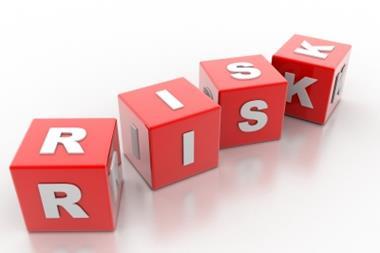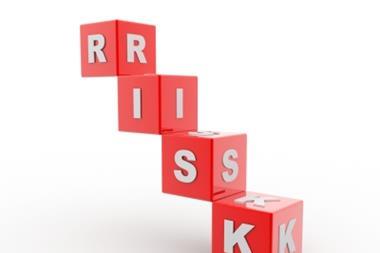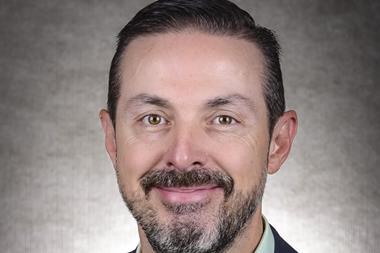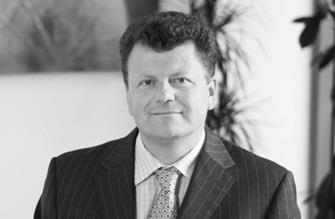MediaCorp risk manager Daniel Tan Kuan Wei knows that risk awareness is not only cultural, it can also be very personal
As a risk professional at one of Singapore’s largest media organisations, Daniel Tan Kuan Wei (pictured) is keenly aware that communication is the key to both his success and that of his company.
However, the assistant vice-president in MediaCorp’s enterprise-wide risk management (ERM) office leaves the audience interaction to his colleagues while he concentrates on communicating risk awareness within the organisation.
Kuan Wei puts it simply: “If your company culture is such that your people don’t report risk, or they hide risk, then risk management will not take off, even if you have a robust risk management system in place”.
It’s about combining effective hardware and ‘heartware’, he explains.
“We implement ERM in the organisation in two ways. First we look at the policy, process and methodology – the hardware,” he says.
“Then we look at the culture, the risk management heartware. If this is very strong in identifying risks, but at the same time there’s no hardware like official risk reporting lines to handle the identified risks and so on, risk management will not take off.”
Risk academy
Kuan Wei says that many companies in Singapore and the surrounding region implement rigorous risk management systems, but they should also put an emphasis on the cultural aspects of risks. “The hardware may be there, but the heartware is the part that’s most challenging for most companies to overcome,” he says.
To guard against this at MediaCorp, Kuan Wei established the company’s own ‘risk academy’, which he calls a “mini risk university”. “We created it three or four years ago,” he says. “We have compulsory risk management modules, in which we create the content and run the workshops ourselves. For the electives, we partner with training providers who come in and train specific people on specific risks that they need to know about.”
You have to tailor content to everyone’s needs, to “personalise the risk”, Kuan Wei argues. “If we take a risk academy approach for all staff all the way from the top to the last guy on the ground, risk management will be imbued into the culture so when people are at work they’re thinking about risk,” he says.
“The soft aspect, the culture bit, of risk management really needs to be enhanced and improved in companies. You must be able to imbue this risk awareness into everybody in the organisation so the risk management really is enterprise wide.”
Considering culture
Beyond his role at MediaCorp, Kuan Wei is busy in a variety of roles all contributing to the improvement of risk management in Singapore. For example, he is a member of the SPRING National Risk Management Working Group tasked with developing a Singapore standard for risk management implementation. He is also second vice-president of the Risk and Insurance Management Association of Singapore (RIMAS).
Kuan Wei was Singapore’s official delegate at the global ISO meeting held in France last year, which aimed to establish an international standard for risk management implementation.
“I was charged with sharing Singapore’s views on risk management, and hopefully I got our point across,” he says. “The point I raised was about culture; I said whatever standards you try to shape, you must always consider culture, the people element. It must be imbued into the ISO standards.”
A newer passion for Kuan Wei is the study of innovation. Last year, he was awarded a joint scholarship from Singapore’s Workforce Development Agency and MediaCorp, allowing him to study for a Masters of Science in Innovation at Singapore Management University.
“Risk and innovation go hand in hand,” he explains, “but at the same time it helps me have more diverse expertise. They impart the necessary skills and knowledge to be an entrepreneur, such as how to pitch your innovation to investors and how to manage risk from the perspective of both an entrepreneur and a venture capitalist.
“Innovation comes in many forms, and there are many ways to look at how you can reshape your business to achieve more profit and business success. It’s related to risk management, but at the same time it is broadening my view of entrepreneurship and innovation.”
Public and private
Kuan Wei’s view is already pretty broad, having worked as a risk advisor at KPMG, in strategic planning with the Singapore Land Authority and as an intelligence analyst with Singapore’s Ministry of Defence. It is this risk management experience in both the public and private sector domains that gives him a unique overview of the risk landscape in Singapore.
“For the public sector point of view, they recognise that they are not free from risks and they are very keen to look into this quite deeply,” he says.
“For example, they are in the midst of developing a unique whole-of-government integrated risk management framework to manage risks impacting on national outcomes.
“For the private sector, you are bound by all these stock exchange listing rules and the Monetary Authority of Singapore (MAS) code of corporate governance, so you have to do risk management. There are pressures locally as well as globally to push this risk management agenda for every company operating in Singapore.”
Kuan Wei says that this latter point is integral to the increasing understanding and utilisation of ERM in Singapore. “Since 2012, when the MAS launched a revised code of corporate governance, there’s been a huge emphasis placed on risk management and internal controls, so companies are becoming more aware of risk management functions and starting in-house risk management departments,” he says. “It’s really taking off in Singapore, but it has to be truly enterprise-wide across the whole company.”
Furthermore, Kuan Wei says, risk professionals need to prove that risk management is there to help an organisation. “We’re here to provide relevant and value-added risk management advice, and if anything happens we can kick in plans to ensure that the company survives in times of major risks and crisis,” he says.
“You have to show management and the board that everything you do is contributing to that.”




















No comments yet